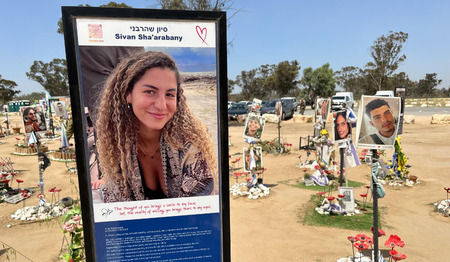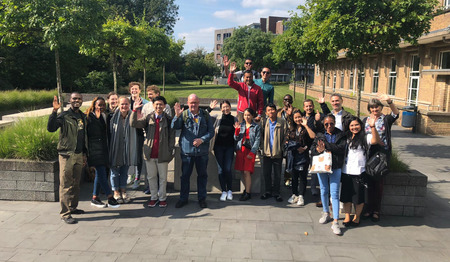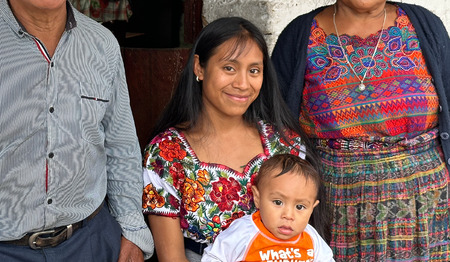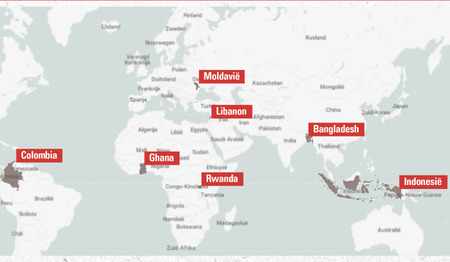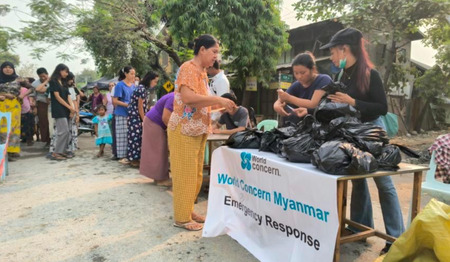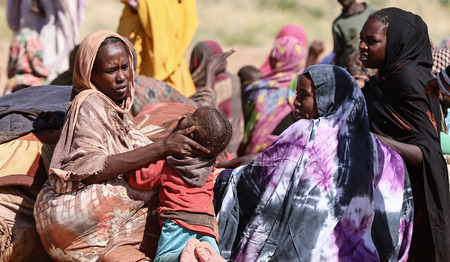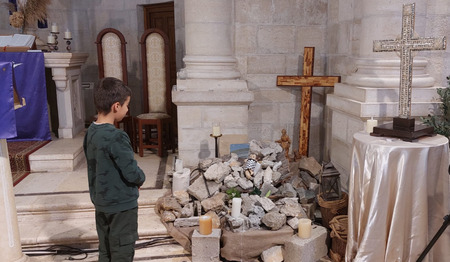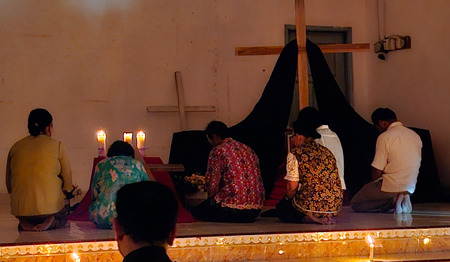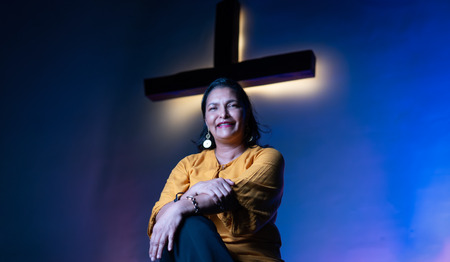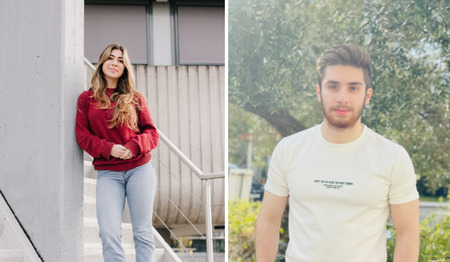Dear partners,
Warm greetings from the Netherlands! I am happy to share with you the second and last Shared Futures newsletter of 2024, which is full of exciting news and developments.
It has been a very challenging year in many contexts of the world. Polarization seems to be on the rise everywhere and living peacefully together sometimes feels like a dream that will never be a reality. Therefore, I am always grateful and encouraged when partners share stories of change. Stories that share about people who are trying to understand each other while being different at the same time. Stories that show the resilience and willingness to live peacefully together despite the wounds and challenges. Stories that show that many young people long for shared futures.
In Kenya a few of these stories have been captured on video by the participants of the Shared Futures project. Together with Insight Share we made the following summary video which I recommend you have a look at!
In this newsletter our partners from Ghana will introduce themselves. Iris and I had the opportunity to exchange with them in October in Tamale where we conducted a training on Most Significant Change.
Last but not least I wish you a blessed Christmas and a prosperous New Year.
Warm greetings
Adriana
Introduction staff from Shared Futures Ghana coalition:
 |
Rev. Dr. Johnson A. Mbillah is the Director of the Centre for Interfaith Studies and Engagement in Africa (CISEA) of the Akrofi-Christaller Institute (ACI) of Theology, Mission and Culture in Akropong-Akuapem. He is also the Deputy Rector and Dean for Continuing Studies of the Institute. He is the former General Advisor of the Programme for Christian Muslim Relations in Africa (PROCMURA). |
 |
Rev. Dr. Solomon S. Sule-Saa is the Dean of Accredited Studies of the Akrofi-Christaller Institute of Theology (ACI), Mission and Culture in Akropong-Akuapem. He is also active in the Centre for Interfaith Studies and Engagement in Africa (CISEA), which falls under the Akrofi-Christaller Institute. |
 |
Emmanuel Sumani Alhassan is the Manager of the Christian Council of Ghana in Northern Ghana. The Council works mainly in the area of peace building among various faiths and interest groups in the communities for a peaceful society. |
 |
Elisha Abubakari works in the communities of Northern Ghana as a Field Officer for the Christian Council of Ghana. |
 |
Rev. Jasper Maas is the Director of the Presbyterian Lay Training Centre (PLTC) in Tamale. The Centre runs programmes in the areas of Leadership Training, Youth and Entrepreneurship, and Peace and Dialogue |
 |
Rev. Simon Wusuwe is the Deputy Director of the Presbyterian Lay Training Centre (PLTC) in Tamale. He is also the District Minister of the Tamale Rural District of the Presbyterian Church of Ghana, which covers about 40 communities in the Tamale area. |
What´s happening?
In this section we will give updates on recent news & events from each country.
From Cameroon
Last June, Mirjam Boswijk and Mirjam Wolting of Kerk in Actie visited Cameroon and also paid a visit to our partners at PRICA, who were introduced in the last newsletter. This gave us the opportunity to provide a training for the new method of collecting Most Significant Change stories, using a story circle. A round of practice took place in Palbara, including participants from Mémé (northern Cameroon) where in a group of project participants, each individual could share what was the most significant change that they encountered in the last year. Together, they chose which of these stories could be deemed the most significant. It was impactful and inspiring to hear everyone’s story, and that a lot of change has taken place! We hope that by using this new method, even more insightful data can be collected, and that we can continue learning from it.
In the meantime, our colleague Marten found himself busy with analysing the data that was collected in 2023. He wrote a report based on the Most Significant Change stories and staff diaries. We are happy that we can use this to keep evaluating the programme and measure the impact that is made.

Another positive development was the interest of external partners in the Shared Futures programme. ACT Alliance is in the process of organising an event around the topic of the Triple Nexus (this refers to interlinkages between the humanitarian, development and peace sectors), and asked us to provide a case study on this topic. We chose to highlight the Shared Futures Cameroon programme for this, because we think it’s a good example of working with this nexus. By also investing in activities like this, we hope to also create more awareness of the Shared Futures programmes in context such as the EU.
From Pakistan
Rural Education and Economic Development Society-REEDs Pakistan, under the knowledge pathway of SF was able to facilitate the two theses on the Shared Futures Program by Khwaja Fareed University of Engineering and Information Technology (KFUEIT) in Rahim Yar Khan represents a notable milestone. The thesis highlights academic and practical impact, showcasing its relevance in fostering interfaith harmony, social coexistence, and community development. It also engaged with various universities and held a National Conference on Social Cohesion and Resilience Building at Bahauddin Zakariya University (BZU). In another effort to showcase the SF work, REEDS has a meeting with the Embassy of the Netherlands in Islamabad and it was able to stimulate the interest, which in the long run could serve as advocacy for the SF program at MOFA, Netherlands.
It also facilitated 281 students of various grades from classes 10th to PhD level in getting the government scholarships from Human Rights Minorities Affairs Department of the government of Punjab.

Civil Society Support Program CSSP, under its Shared Futures program signed a MoU with the Hyderabad region police (covering nine districts) to strengthen the government response capacity to safeguard the rights of Minorites in the targeted districts. Under the MoU district level Minority Facilitation Desks are established and police staff trained to respond and facilitate the issue concerning the minorities. In total 60 police staff are serving in the MFDs who are regular employees of the police department, thus adding to the capacities of the police and ensuring the sustainability of the MFDs. Furthermore, CSSP has been able to train, provide cash grants and business training among 75 youth of the targeted areas. Since the program is in a great demand in Pakistan, both CSSP and REEDS applied for a call for proposal by EU for Pakistan with special focus on the inclusion of minorities. Unfortunately, the application could not succeed, however it scored quite well.
From Kenya
Consortium partners in Kenya enthusiastically kicked off the third and final phase of the Shared Futures project in Kenya. The project will be implemented in Mombasa and Kwale counties for 3 years from July 2024 to June 2027. They were encouraged by the outcomes realized in the second phase as evidenced by many transformational stories shared during the PV-MSC and evaluation. In this third phase, partners are determined to reach more youths and interfaith community members and share the importance of interfaith socioeconomic cooperation.
The third phase began with an interactive inception meeting where partners and stakeholders provided feedback on the project’s successes in the lives of community members. Furthermore, stakeholders pledged their continued support and willingness to collaboratively engage in various activities that contributed to peaceful coexistence. This was further echoed during community entry meetings. Partners look forward to the linkages and opportunities for youths offered by government, civil society organizations and the private sector.
In addition, partners have been mapping out and conducting assessment in new locations within the project implementation areas. New maskani groups were identified and engaged in entry meeting where youths learnt more about the project and the various interventions. They will thereafter be involved in psychosocial support sessions. Apart from maskani groups, assessment of agribusiness youth groups is ongoing. These youths will be engaged in agribusiness training done by both partners and the county department of agriculture. Business and entrepreneurship training is also ongoing for youth groups to equip them with knowledge and skills for income generation.
Through art and edutainment, magnet theatre shows have been done to create more awareness and sensitize communities on the power of jointly working together for peaceful interfaith coexistence. The shows not only serve to help communities learn but actively give feedback as they engage in discussions and showcase their talents. Youths are further encouraged to explore skills and talents as a solution for addressing various socioeconomic challenges they face.

Partners also participated in an annual youth economic summit with other civil society organizations and representatives from different sectors in government and the private sector. The purpose was to create more awareness on the interventions in preventing and countering violent extremism. They also discussed various economic challenges faced by youth and innovative solutions on addressing them. As we move towards the end of the year, we wish everyone a successful December and happy holidays ahead.
From Egypt
The Shared Futures project of CEOSS has greatly benefited from the MSC training in March. The MSC stories that were written down by the staff were collected in a story circle which improved the quality of the stories greatly. People really liked to share their stories. Village champions for the two new villages in El Mynia were selected and are being trained now. Unfortunately, there was a delay in being able to carry out the project because funds arrived late.
From Ghana
The Shared Futures Ghana programme will start in January 2025. For this reason, the coalition is working hard to get ready for its smooth take-off. The coalition consists of 3 partners, the Christian Council Ghana – Northern Sector (CCG-NSO), Presbyterian Lay Training Centre (PLTC) and Centre for Interfaith Studies and Engagement in Africa (CISEA).
As part of the preparation, there was a training in the Most Significant Change methodology, for which Adriana and Iris visited Tamale. It was an interesting week of discussions on the context of Northern-Ghana, shared futures and MSC. On the last day of training participants of the peace club project of the CCG-NSO and youth from the Youth for Work program of PLTC were invited to tell their stories. It was inspiring to hear the change that is already happening in these programs, and we are looking forward to more (stories of) change once shared futures Ghana has started.

From the Netherlands
Introducing Radboud Reijn – Lobbyist Brussels
Kerk in Actie has launched a targeted lobby campaign in Brussels to raise awareness of our Shared Futures programme among policymakers in the European Union. With this campaign, we aim to raise awareness of the unique role of Shared Futures in promoting tolerance in communities.
By engaging directly with policymakers, we aim to expand our impact on a European scale and make our vision of a shared, peaceful future a reality. With this strategic effort, we hope not only to gain policy support, but also to create new opportunities for collaboration with EU institutions and civil society organisations. The power of Shared Futures lies in its ability to connect people and communities, and with these lobby activities we aim to further increase the impact of our work. We remain committed to a sustainable, inclusive and peaceful society and look forward to working on this mission together with our partners at the European level. To achieve this, we work together with Radboud Reijn, who helps us shape and implement this lobby strategy.

Radboud Reijn
Shared Futures and Triple Nexus Cameroon
In December Kerk in Actie will participate in a roundtable in Brussels: "Maintaining engagement in fragile contexts through partnership with local faith-based organisations" organised by EU-Cord, Act Alliance EU, Islamic Relief Sweden, Caritas Europa, and COMECE.
In preparation we have shared an impactful case study from the Shared Futures project in Northern Cameroon. The invitation itself used a picture from the Shared Futures project in Kenya. In the next newsletter we will share the outcomes of this meeting.
Communication strategy
As we would like to share more on the impact of the Shared Futures program with our constituents, we are in the process of updating our website. Together with our communications department we have developed a strategy for 2025 and beyond. This will not only include communication via the website but also via other communication channels of Kerk in Actie. The website page will be in Dutch but for the above-mentioned lobby activities we will also develop an English webpage. For this we are always very happy to receive impact stories and high-resolution pictures.
Adapted research frame
The validation report published in 2023 also provided recommendations to improve the data collection based upon the evidence gap map. This has resulted in an adaptation of both the Theory of Change as well as its connected research frame. More emphasis will be put on the collection of quantitative data supporting the qualitative data gathered via MsC. For this purpose, a new measurements framework has been developed. The various steps in this process have been reflected visually but also updated in the Guidebook for Change Monitoring and Evidence based research.

For the new Shared Futures countries and for partners who have a contract renewal we will apply the new research framework as described in the updated guidebook. For those active in ongoing project we will discuss bilaterally what is the best approach. I encourage you to go through the document and also reach out if you have any questions.
Practical
The next news letter will be shared in June 2025. Please provide your input before 15th of June 2025.
We wish you a blessed Christmas and a hopeful 2025!




